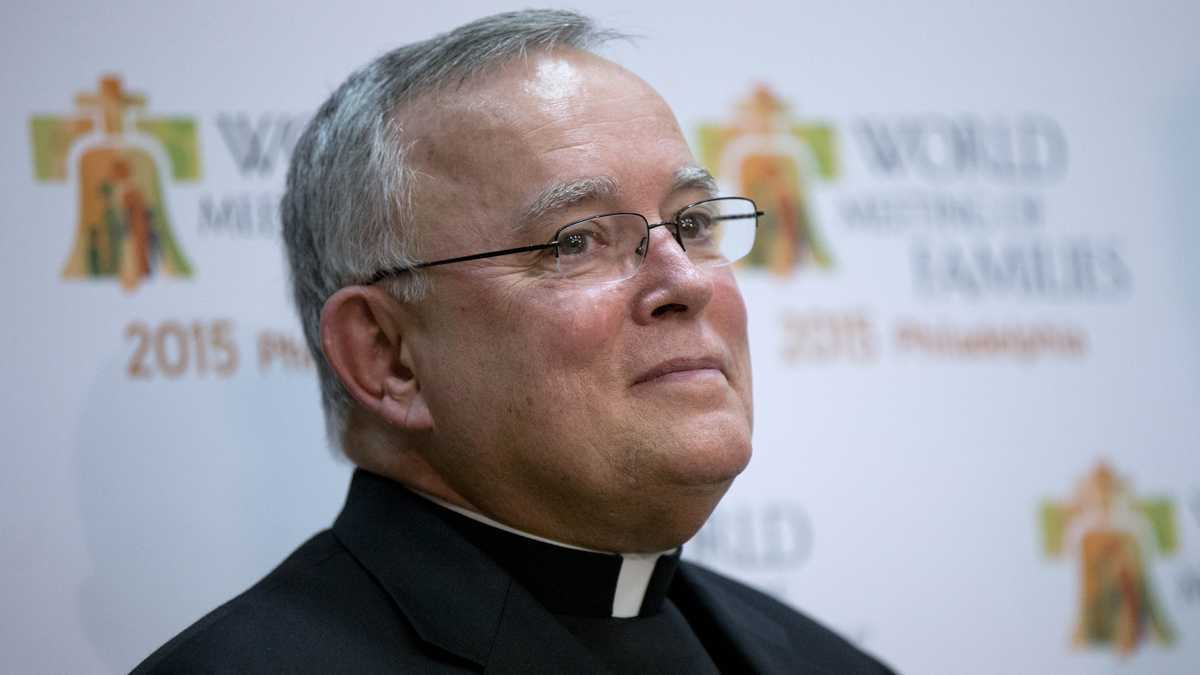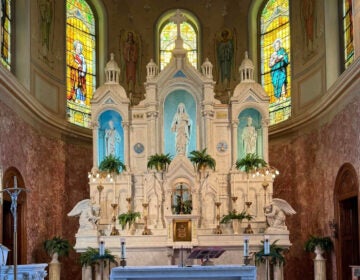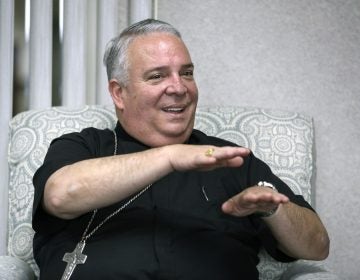Philadelphia Archdiocese creates independent program to compensate sex abuse victims

Philadelphia Archbishop Charles Chaput. (Matt Rourke/AP Photo, file)
The Philadelphia Archdiocese announced Thursday it is creating a program to compensate victims of clergy sexual abuse who are barred from filing civil lawsuits due to the statute of limitations.
The creation of the Independent Reconciliation and Reparations Program follows the release of an explosive Pennsylvania grand jury report in August. The report did not include the Philadelphia Archdiocese — as two earlier city grand jury reports did — but chronicled alleged abuse of more than 1,000 victims by 301 priests in the Pittsburgh, Allentown, Erie, Greensburg, Harrisburg, and Scranton dioceses.
In a column on CatholicPhilly.com, Philadelphia Archbishop Charles Chaput said the new program keeps a promise to better support abuse survivors.
“The damage done to innocent young people and their families by sexual abuse in the past is profound. It can’t be erased by apologies, no matter how sincere. And money can’t buy back a wounded person’s wholeness,” Chaput wrote. “But what compensation can do is acknowledge the evil done and meaningfully assist survivors as they work to find greater peace in their lives.”
The IRRP will operate without input from Archdiocesan leadership, according to a press release announcing its creation. Instead, an independent committee headed by former U.S. Senate Majority Leader George J. Mitchell will administer the program.
The committee will also include Kelley Hodge, former Interim Philadelphia District Attorney and Lawrence F. Stengel, a former federal Chief Judge in the Eastern District of Pennsylvania.
The committee will have the sole power to weigh claims and determine the amounts paid.
Initially, payments will come from “existing Archdiocesan assets” and not donations made to Catholic schools, parishes or ministries, according to the church.
After that, Chaput says “additional program funding will need to come from borrowing and the sale of archdiocesan properties.”
Part of what’s promised — aside from reparations — is discretion.
“This effort is entirely independent of the Archdiocese and is confidential,” wrote Chaput. “The program is designed to help survivors come forward in an atmosphere where they are secure and respected, without the uncertainty, conflict, and stress of litigation.”
Some survivors and their advocates have called for a more public process to bring the crimes of the past to light.
And critics worry that the confidential nature of this effort may be self-serving.
“I think they are putting their best foot forward with this program, but I have a hesitancy that this is kind of admitting to one thing to cover up 1,000,” said Mike McDonnell, leader of the Philadelphia chapter of the priest sexual abuse survivor network, SNAP.
McDonnell believes a change in law is needed, such as that proposed by State Rep. Mark Rozzi (D-Berks), himself a survivor of sexual abuse by a priests, which would give survivors a two-year window to sue over past abuse.
That bill died shortly before the state General Assembly’s session ended in Harrisburg last month.
In a statement, state Attorney General Josh Shapiro said that while the dioceses now acknowledge the “horrific and extensive abuse and cover up” unearthed in the report, “the Grand Jury recommended that victims deserve their day in court – not that the church should be the arbiter of its own punishment.
“These undefined compensation funds do not give a pass to lawmakers,” he added.
Committee members will hold a press conference on Nov. 13 to discuss the program in more detail.
WHYY is your source for fact-based, in-depth journalism and information. As a nonprofit organization, we rely on financial support from readers like you. Please give today.





